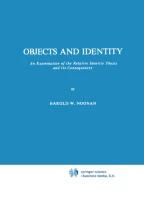
However, as I said at the beginning of the last chapter, my chief aim is to criticize not the views of Williams — with whom I am in agreement to a large extent — but those of the memory theorists. To defend a memory criterion against Butler’s objection of vicious circularity Shoemaker is forced to introduce a notion of “quasi-memory” in terms of which he goes on to lay down conditions for personal identity. But it is easy to see that if one thing can become two this notion cannot be used in this way as a defence against Butler’s objection. This is what I now turn to. 1
This is a preview of subscription content, log in via an institution to check access.
eBook EUR 85.59 Price includes VAT (France)
Softcover Book EUR 105.49 Price includes VAT (France)
Hardcover Book EUR 105.49 Price includes VAT (France)
Tax calculation will be finalised at checkout
Purchases are for personal use only
© 1980 Springer Science+Business Media Dordrecht
Noonan, H.W. (1980). Memory and Quasi-Memory. In: Objects and Identity. Melbourne International Philosophy Series, vol 6. Springer, Dordrecht. https://doi.org/10.1007/978-94-017-2466-1_14
Anyone you share the following link with will be able to read this content:
Get shareable link
Sorry, a shareable link is not currently available for this article.
Copy to clipboard
Provided by the Springer Nature SharedIt content-sharing initiative